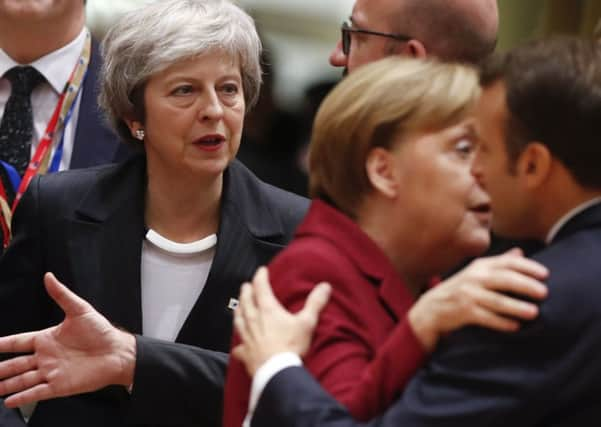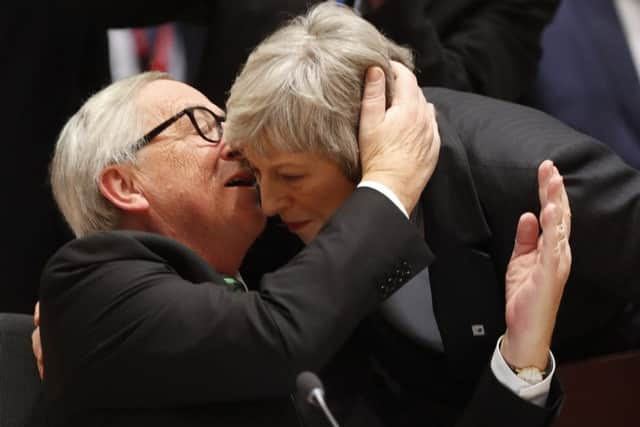Tony Rossiter: Breaking all the rules of success in negotiations


Negotiation is not a dark art. For the most part, it is just plain common sense. There are only three key principles. The first is to establish clear objectives. The EU 27 were much better at that than the UK.
Of course, all 27 countries have their own national interests to protect. But at an early stage they identified maintenance of the integrity of the Single Market and the customs union as their overriding objective.
Advertisement
Hide AdAdvertisement
Hide AdAs Michel Barnier put it, no ‘cherry-picking’ the benefits of the Single Market without accepting the financial and other obligations of EU membership: free movement of goods, services, capital and people.


They were remarkably steadfast in sticking to that agreed script. If UK negotiators had hoped that internal politics and pressures on individual governments (for example, by German car manufacturers keen to retain free access to the UK market) would open up rifts between the 27, they would have been disappointed.
The Government’s plans for leaving the EU were set out in the Prime Minister’s Lancaster House speech of January 2017, and the Government gave formal notice of its withdrawal on March 29, last year. Soon after that preparations were delayed by the General Election in June.
Triggering Article 50 of the Lisbon Treaty, which stipulates a maximum of two years for the completion of a withdrawal agreement, when there were significant unresolved differences within government about the desired outcome, was a huge mistake.
Advertisement
Hide AdAdvertisement
Hide AdIn any negotiation, it is essential to get your key stakeholders on board and signed up to your objectives at the outset. When I represented the UK on one of the EU Council’s Working Groups, the preparatory discussions in Whitehall, thrashing out an agreed UK position, were often more difficult than the subsequent negotiations in Brussels.
If you don’t have agreed objectives at the outset, you’ll inevitably be on the back foot, and if internal divisions become public knowledge, they’re likely to be exploited by the opposition. You can hardly blame them.
In the absence of agreed, clear objectives, it’s not easy to prepare. And that’s the second key principle: thorough preparation. Preparation can be looked at as a three-layered pyramid. At the top are your objectives: what you are seeking to achieve. Below that come the facts and the arguments that will underpin your negotiating position. At the bottom of the pyramid is the foundation – the underlying interests and concerns on which the whole thing is based.
When negotiations eventually began (after the General Election) at the end of June 2017, the UK accepted the EU’s phased approach to the talks. This meant that discussions on future trade arrangements could begin only after the terms of the UK’s withdrawal had been agreed; that the first stage of negotiations would cover the three key issues of citizens’ rights, the Irish border and the financial settlement; and that only when sufficient progress had been made on these would the talks move on to discuss other issues and the future UK/EU relationship.
Advertisement
Hide AdAdvertisement
Hide AdThe UK’s acceptance of this phased approach played into the EU’s hands. In particular, agreement (announced in December 2017) of the methodology and components of the financial settlement, before other key elements had been agreed or in some cases (the future relationship) even discussed, meant the surrender of a valuable bargaining chip.
The third key to effective negotiation is to establish good personal relationships with the other side. This can make all the difference in the world. It’s never a good idea to blame or antagonise the opposition.
When the crunch comes and talks get really tough, differences are rarely resolved around the conference table. A quiet one-to-one chat over a coffee or a beer between people who know each other well is much more likely to break the impasse. So it’s pretty obvious that British Ministers who compared the EU to the Soviet Union, or spoke about ‘having our cake and eating it’, or accused the EU of blackmail, did not exactly help.
In any negotiation, slagging off the opposition is unlikely to lead to a successful outcome. Building a good – open and honest – relationship with the other side can be just as important as preparing your negotiating position.
Advertisement
Hide AdAdvertisement
Hide AdSo those are the three keys to effective negotiation: clear objectives, thorough preparation and good personal relationships. They’re not exactly rocket science.
What a pity the Government ignored them.
Tony Rossiter is a former diplomat from North Yorkshire. For six years in the 1990s, he was the UK representative on one of the EU Council’s Working Groups, and took part in many EU negotiations.